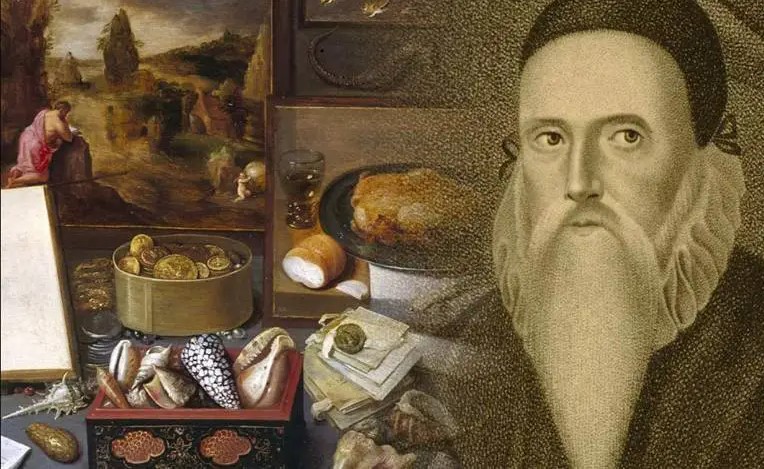He is compared to Dumbledore in the Harry Potter series: Who is John Dee?
The adjectives to be used for John Dee (1527 – 1608), one of the most brilliant men of his age, should have been philosopher, mathematician, astronomer, and truth seeker.

But history remembers him as the archetype of wizardry, the model for countless fictional characters, from Prospero in Shakespeare's The Tempest to Dumbledore in the Harry Potter series.
Although his appearance and personal belongings support this definition, just because he looks like a magician does not mean that John Dee is.
John Dee received a good education. He was gifted in mathematics from an early age. He attended St John's College, where he earned both a bachelor's and a master's degree. He then traveled around Europe for several years studying mathematics, navigation, and cartography with other European scholars such as Pedro Nuñez and Gerardus Mercator.
John Dee (13 July 1527 – 1608 or 1609) was an English mathematician, astronomer, astrologer, teacher, occultist, and alchemist. He was the court astronomer for, and advisor to, Elizabeth I, and spent much of his time on alchemy, divination, and Hermetic philosophy. As an antiquarian, he had one of the largest libraries in England at the time. As a political advisor, he advocated the foundation of English colonies in the New World to form a "British Empire", a term he is credited with coining.
He gave lectures on Euclid in Paris. He learned the revolutionary theories of Copernicus from the astronomer Tycho Brahe. Working with mapmaker Gerard Mercator, he developed a new set of tools for making accurate maps. He also collected books with a lifelong passion. With more than four thousand volumes he acquired, he created the most extensive library in Europe.
Additionally, he became proficient in the study of astronomy and medicine. Upon returning to England, Dee made a name for himself at Queen Mary I's court, teaching math and seafaring to the courtiers. He subsequently became Queen Elizabeth I's primary scientific and medical adviser when she ascended the throne.
The name given to those who tried to determine the rules of nature in the 16th century was the natural philosopher. Like Pythagoras, John Dee believed that the universe was written in the language of mathematics. After all, for Dee and many of his contemporaries, scientific inquiry, pure and applied mathematics, philosophy, and "magic" as it was then understood were all aspects of the same truth-seeking. In fact, according to them, alchemy and astrology were at least as scientific as geometry.
In addition to his role as an advisor to Queen Elizabeth I, he was also her astrologer. After all, this was a common occurrence. But what set Dee apart from most of his peers was that his occult interests extended to topics then considered heretical, such as trying to communicate with angels and the spirits of the dead. As a result, John Dee was often referred to as the "Queen's Wizard."
Dee has devoted the last thirty years of his life to gaining knowledge of the universal language of creation and apocalypse by communicating with spiritual beings. In the next ten years, he made many practical contributions to social life. He pioneered the application of geometry in maritime transportation. He trained many of the great sailors of the time in drawing and reading maps. He was the first to use the phrase "British Empire".
He spent the following years in palaces working on astrology, alchemy experiments, and seeing the future through spirits.
When Elizabeth died in 1603, she was succeeded by James I, who is known for his hatred of witchcraft in all its forms. The following year, Dee wrote him a letter declaring his devotion. He tried to convince himself that none of the many strange senseless stories told about him were true. The king didn't even bother to reply. As a result, John Dee lost his position and died poorly in 1608.
In the following years, as a result of both his mystical reputation and his academic legacy, John Dee became a subject of interest among the European elite. After all, John Dee was a precursor to a class that made mechanical inventions by revealing the mystical "hidden knowledge" of how nature works.
